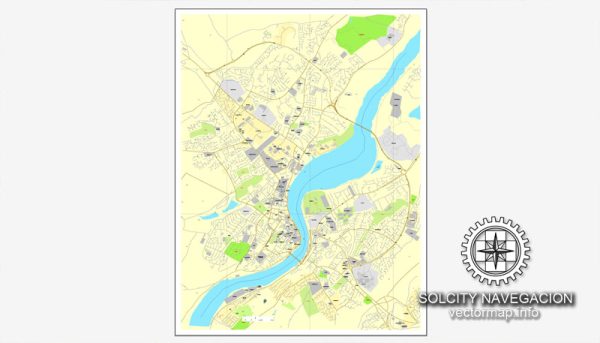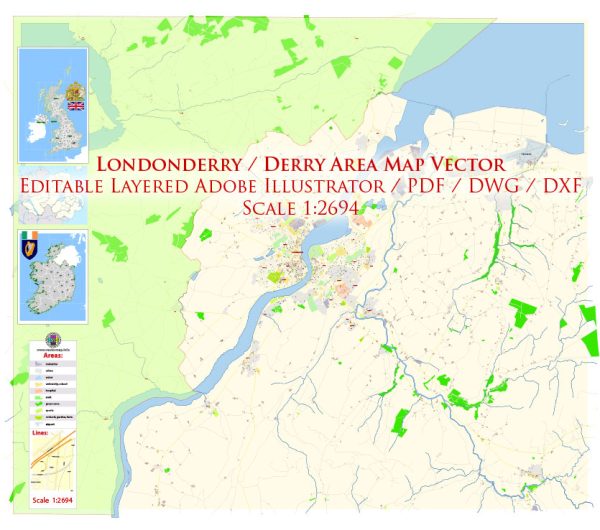The history of Derry, often referred to as Londonderry, in the United Kingdom is rich and complex, marked by centuries of cultural, political, and religious tensions. Derry is a city located in Northern Ireland, and its name is often a point of contention, reflecting the ongoing divisions in the region.
- Early History: Derry has a long history, with evidence of human habitation dating back to at least the 6th century. It was originally a monastic settlement and later a prominent town during the Plantation of Ulster in the 17th century.
- Plantation of Ulster: In the early 1600s, King James I of England and VI of Scotland initiated the Plantation of Ulster, a scheme to encourage Scottish and English Protestant settlers to establish communities in Northern Ireland, including Derry. The city’s walls, which still stand today and are some of the best-preserved city walls in Europe, were built during this time.
- Siege of Derry: One of the most significant events in Derry’s history was the Siege of Derry in 1689, during the Williamite War in Ireland. The city was besieged by the Catholic forces of King James II and came under a protracted siege that lasted for 105 days. The Protestant defenders held out, and the city is still known for this historic event.
- Division and Conflict: Derry, like much of Northern Ireland, has been a focal point for the sectarian conflict between the predominantly Protestant unionists (who want Northern Ireland to remain part of the UK) and the predominantly Catholic nationalists (who seek a united Ireland). The city has witnessed numerous conflicts, civil rights marches, and episodes of violence during the Troubles, a period of conflict in Northern Ireland that spanned roughly from the late 1960s to the Good Friday Agreement in 1998.
- The Good Friday Agreement: This peace agreement, signed in 1998, helped to bring an end to the Troubles by establishing a devolved government in Northern Ireland and addressing many of the political and cultural issues at the heart of the conflict. Derry played a role in this peace process, and the city has seen improvements in stability and cross-community relations since the agreement was implemented.
- Dual Identity: The naming of the city is itself a reflection of the divided identity in Northern Ireland. Unionists often refer to the city as Londonderry, emphasizing its connection to London and the UK, while nationalists tend to call it Derry, emphasizing its Irish identity. The city officially retains the name Londonderry, but it is often informally referred to as Derry.
- Cultural Heritage: Derry has a rich cultural heritage, with a strong tradition of music, literature, and the arts. The city has a vibrant music scene, and its annual Halloween festival is one of the largest in Europe. It is also known for its distinctive dialect, often called “Derry English” or “Derry Irish,” which reflects the complex cultural influences on the city.
In summary, the history of Derry/Londonderry is marked by a complex interplay of cultural, political, and religious identities, with a legacy of both conflict and efforts at peace and reconciliation. Today, it is a city working to move beyond its troubled history and build a more harmonious and prosperous future.



 Author: Kirill Shrayber, Ph.D. FRGS
Author: Kirill Shrayber, Ph.D. FRGS